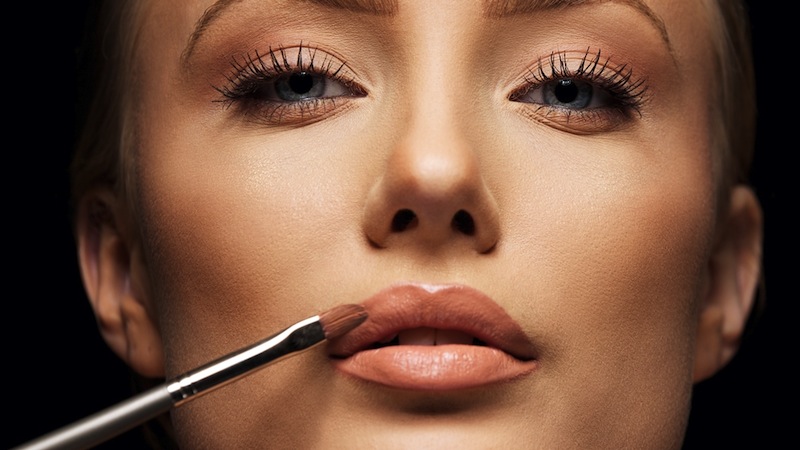Why Is Symmetry So Sexy? It Has Nothing to Do with Health

Facial symmetry is sexy, but perhaps not for the reasons scientists had long thought.
Humans have such a strong preference for faces and bodies that are symmetrical that evolutionary psychologists and other researchers who study human behavior have long theorized that symmetry might be a signal of good health.
But now, a new study finds that facial symmetry is not linked with health, at least during early childhood.
"These findings call into question the assumption that people have a preference for symmetry in faces because it provides a cue to health during development," said Nicholas Pound, a senior lecturer in psychology at Brunel University London and co-author of the study. [Smile Secrets: 5 Things Your Grin Reveals About You]
Signal of health?
Despite the widespread assumption that symmetry might be a sign of good health, studies have turned up little evidence of a link between the two. A few small studies have linked facial asymmetry with some short-term health woes, like scratchy throats, but many others have found no links at all.
However, those studies were generally small, relied on people to accurately report their own health and focused on participants' recent health.
Sign up for the Live Science daily newsletter now
Get the world’s most fascinating discoveries delivered straight to your inbox.
In the new study, researchers examined 4,732 British 15- and 16-year-olds whose health had been tracked since birth as part of the United Kingdom's Avon Longitudinal Study of Parents and Children.
The researchers analyzed three-dimensional scans of teens' faces, looking for symmetry, and compared those findings to health measures including birth weight, childhood health problems, body mass index (BMI) and even IQ at age 8.
The results showed no links between health and facial symmetry. Asymmetry was not related to more childhood ailments, nor to a lower birth weight or higher BMI, Pound told Live Science. Low birth weight and high BMI have each been linked with numerous health problems.
There was a tiny correlation between greater symmetry and higher IQ, but the link accounted for less than 1 percent in the variation of IQs seen in the sample, Pound said. The weakness of the link makes it unlikely that facial symmetry has any real-world value in gauging someone's intelligence.
"Our results indicate that choosing a mate with a relatively symmetrical face would be a very inefficient method of selecting a relatively healthy or intelligent partner from the general population, especially with the availability of more obvious cues" to a person's health, said David Lawson, an evolutionary anthropologist at the London School of Hygiene and Tropical Medicine and another researcher on the study.
Why symmetry matters
The findings raise the question: If people aren't attracted to symmetry because it provides useful information about the value of a potential mate, why do humans find symmetry so sexy?
One possibility, Pound said, is that people simply like symmetry in all things, from art to natural objects to faces. Another is that people overgeneralize their preference for symmetry. Serious genetic disorders or trauma could lead to major asymmetry, far more obvious than the asymmetries in the general population usually studied. In other words, people might subconsciously avoid minor asymmetries simply because they've evolved to avoid major ones.
Or, there could be more to the asymmetry question, said Daniel Kruger, an evolutionary psychologist at the University of Michigan who was not involved in the study.
"Our psychology evolved long before we had modern medicine and public health, so how does this compare in terms of the health environment of nonmodern populations and foraging environments, but also with the range of asymmetry?" Kruger said.
Ancient humans may have had a wider range of ailments, leading to more asymmetry than what exists in humans today, Kruger told Live Science. The new study should be repeated with tribal people who live more like early hunter-gatherers and are subject to some of the same challenges from diseases and parasites, he said.
"For people who are arguing for the relevance of this fluctuating [facial] asymmetry, it is disappointing, but there are definitely some unanswered questions," he said.
The findings appear today (Aug. 12) in the journal Proceedings of the Royal Society B.
Follow Stephanie Pappas on Twitter and Google+. Follow us @livescience, Facebook & Google+. Original article on Live Science.

Stephanie Pappas is a contributing writer for Live Science, covering topics ranging from geoscience to archaeology to the human brain and behavior. She was previously a senior writer for Live Science but is now a freelancer based in Denver, Colorado, and regularly contributes to Scientific American and The Monitor, the monthly magazine of the American Psychological Association. Stephanie received a bachelor's degree in psychology from the University of South Carolina and a graduate certificate in science communication from the University of California, Santa Cruz.









